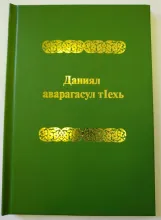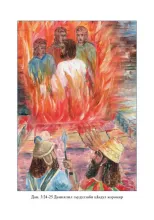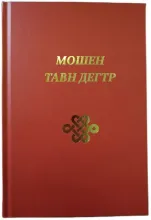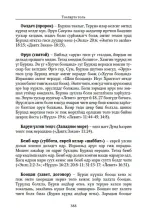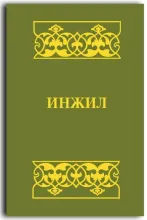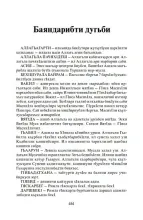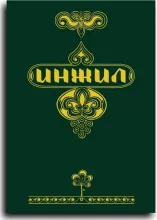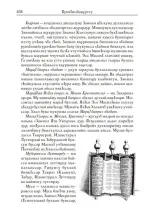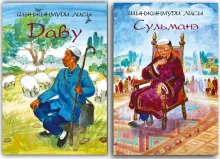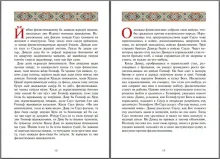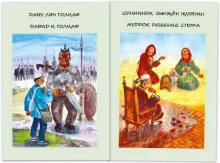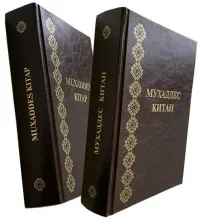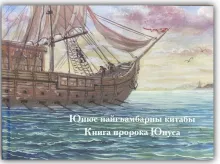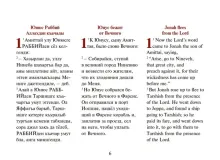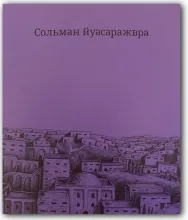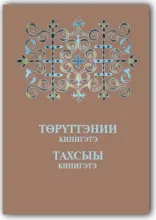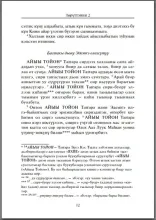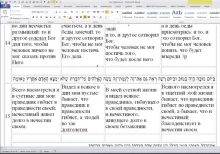news-15052023
The Institute for Bible Translation (IBT) has published the first-ever translation of the book of the prophet Daniel in the Avar language. The book of Daniel is one of the most widely read books of the Old Testament. It includes the well-known stories of Daniel in the lions’ den, the three young men in the fiery furnace, and the divine handwriting on the wall. It also contains many prophecies about the future.
The Avar language belongs to the Nakh-Dagestanian language family, with 956,800 speakers according to the 2021 census of the Russian Federation. It is also used as a language of interethnic communication by the Andic and Tsezic language groups. Avars live mainly in the Republic of Dagestan, where they constitute about 30% of the total population...
news-05052023
The Institute for Bible Translation (IBT) has published a translation of the Pentateuch into the Kalmyk language. In ancient Hebrew, the first five books of the Old Testament that make up the Pentateuch are called "Torah," which means "instruction" or "learning." Kalmyk readers, most of whom come from the Buddhist tradition, will now be able to discover for themselves the wonderful world of biblical history: the Pentateuch lays the foundation of Old Testament religion with its moral principles, describes the creation of the world and humanity, and tells how sin and suffering came into our world and distorted the relationship between God and people.
The first book of the Pentateuch, Genesis, was previously translated into Kalmyk and published in 2005. The other four books (Exodus, Leviticus, Numbers and Deuteronomy) were translated between 2017 and 2022...
news-06042023
The Institute for Bible Translation (IBT) has published the Dargi edition of the Injil, containing six New Testament books: the Gospels of Matthew, Mark, Luke, and John, the Acts of the Apostles, and the book of Revelation. The title of this edition, Injil, is mentioned several times in the Qur'an and is familiar to readers from the Muslim tradition. This word is the Arabic equivalent of the Greek word "Evangelion" and means “Good News”.
The Dargis are the second largest ethnic group in the Republic of Dagestan, constituting about 16.5% of the republic's population. The Dargi language (with 485,705 speakers in Russia) belongs to the Nakh-Dagestanian family of North Caucasian languages. Dargis traditionally adhere to Sunni Islam...
news-27032023
The Institute of Bible Translation (IBT) has published a new edition Injil in the Lak language, including the Four Gospels, the Acts of the Apostles, and the book of Revelation.
The Laks (approximately 173,000 in Russia, according to the 2021 census) are one of the indigenous peoples of the central part of Dagestan, where there are about 60 Lak villages. The Lak language belongs to the Nakh-Dagestan language group. The Laks traditionally practice Islam.
Since the first Lak Scripture portion was published in 1996, the knowledge and skills of the translation team and their ability to translate the Biblical text have improved with each new edition. Many key terms have been clarified, the spelling of proper names has been polished, etc. Now all these books have been revised and printed in a single edition...
news-20032023
The Institute for Bible Translation is continuing its series of short "Stories of the Prophets" in the Dungan language, telling the story of biblical prophets who are revered by Muslims, Christians, and Jews alike. The newest books in the series are David and Solomon. The texts of the Dungan translation are accompanied by a parallel Russian text and colorful illustrations by the Dungan artist Khalida Shimova, who portrayed the biblical characters as closely as possible to the Dungan readers’ worldview, psychology, and way of life.
news-24012023
The Institute for Bible Translation (IBT) has produced the first-ever translation of the complete Bible into the Karakalpak language. The project began in the mid-1990s and was carried out by IBT in partnership with the United Bible Societies and SIL International.
news-20122022
IBT has published a Karachai translation of the book of Jonah. This is the first book of the Old Testament translated by IBT into the Karachai language. Prior to that, the Gospel of Mark (1978) and the Gospel of Luke (1999) were published in Karachai.
The translation of Jonah was published as an illustrated edition with artwork produced by an artist from the Caucasus and with a parallel Russian and English text, the latter for attracting the interest of young Karachais who are learning English.
news-08122022
IBT has published a new book in the Abaza language called Solomon's Wisdom. The Abaza are a people of the Northwestern Caucasus who live primarily in the Karachay-Cherkess and Stavropol areas of southern Russia. The Abaza language belongs to Abkhaz-Adyghe group of Caucasian languages. It is one of the five official languages of the Karachay-Cherkess Republic. According to the 2010 census, the number of Abaza speakers in Russia is about 38,000.
The new edition is a collection of extracts from two Biblical books – 1 Kings and the book of Proverbs. The epigraph to the collection is the quote, "The teaching of the wise is a fountain of life, turning a person from the snares of death" (Proverbs 13:14). It introduces the reader to the central theme of the collection: wisdom. Wisdom belongs to God; it is the moral law of the universe. It is woven into the foundation of things and everything in the world is subject to its laws. Whenever people do good deeds and make good decisions, they live in harmony with wisdom...
news-09112022
The Institute for Bible Translation (IBT) has released Genesis and Exodus in the Yakut language.
The Yakuts (endonym: Sakha) are an indigenous people of eastern Siberia and the Far East region of the Russian Federation. The Yakut language belongs to the Turkic group of languages. According to the 2010 All-Russian population census, it is spoken by about 450,000 people.
Both of these books are distinguished by a variety of literary styles: sometimes it is a solemn narrative, at other times, a long genealogical list, or a beautiful blessing in verse. In order to convey the exact meaning of these two books in modern literary Yakut...
news-14102022
On October 10-14 IBT conducted a webinar for Bible translation teams from IBT and partner organizations on the Old Testament book of Ecclesiastes. 14 participants from seven Bible translation projects (Avar, Kyrgyz, Tabasaran, Khakass, Tsakhur, Yakut and a North Caucasian project) gathered online for this training event. The webinar was taught by Luka Manevich, a biblical scholar and exegetical adviser in several Scripture translation projects, already familiar to many of the students from his expert instruction at previous webinars.

